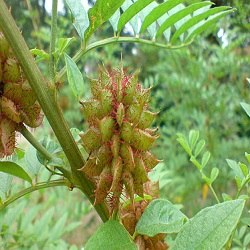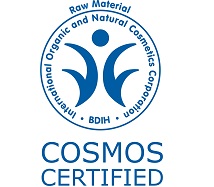

Organic Liquorice Roots Herb (Glycyrrhiza Glabra Herb)
Organic liquorice roots herb, scientifically known as Glycyrrhiza glabra herb, refers to the roots of the liquorice plant that have been cultivated using organic farming practices. Glycyrrhiza glabra is a perennial herbaceous plant native to the Mediterranean region and parts of Asia. The roots of this plant have been used for centuries in traditional medicine and culinary applications due to their distinctive sweet flavour and potential health benefits. As an herbal medicine it has an impressive list of well documented uses and is probably one of the most over-looked of all herbal wonders.
Liquorice or licorice is the root of Glycyrrhizaglabra from which a sweet flavour can be extracted. The liquorice plant is an herbaceous perennial legume native to the Middle East, southern Europe, and parts of Asia, such as India. It is not botanically related to anise, star anise, or fennel, which are sources of similar flavouring compounds. Liquorice flavours are used as candies or sweeteners, particularly in some European and Middle Eastern countries.
Liquorice extracts have been used in herbalism and traditional medicine. The scent of liquorice root comes from a complex and variable combination of compounds, of which anethole is up to 3% of total volatiles. Much of the sweetness in liquorice comes from glycyrrhizin, which has a sweet taste, 30–50 times the sweetness of sugar. The sweetness is very different from sugar, being less instant, tart, and lasting longer.
Liquorice flavour is found in a wide variety of candies or sweets. In most of these candies, the taste is reinforced by aniseed oil so the actual content of liquorice is very low. Liquorice confections are primarily purchased by consumers in Europe but are also popular in other countries such as Australia and New Zealand. Excessive consumption of liquorice (more than 2 mg/kg/day of pure glycyrrhizinic acid, a liquorice component) may result in adverse effects, such as hypokalemia, increased blood pressure, and muscle weakness, so it’s advisable to use its quantity in lesser amounts.
Here’s a breakdown of what organic liquorice roots herb entails:
1. Organic Cultivation: Organic liquorice roots herb is grown without the use of synthetic pesticides, herbicides, fertilizers, or genetically modified organisms (GMOs). Organic farming practices prioritize environmental sustainability, soil health, and biodiversity conservation.
2. Medicinal Properties: Liquorice roots herb is renowned for its medicinal properties. It contains various bioactive compounds, including glycyrrhizin, flavonoids, saponins, and antioxidants, which contribute to its potential health benefits. These may include anti-inflammatory, antiviral, antimicrobial, and expectorant properties.
3. Traditional Uses: In traditional medicine systems such as Ayurveda, Traditional Chinese Medicine (TCM), and Western herbalism, liquorice roots herb has been used to treat a wide range of health conditions. It is commonly used to soothe sore throats, alleviate coughs, support digestive health, and promote adrenal gland function.
4. Culinary Uses: Apart from its medicinal applications, liquorice roots herb is also used as a flavoring agent in culinary preparations. It imparts a sweet, slightly woody flavor to foods and beverages. Liquorice roots herb can be infused into teas, added to soups, stews, and sauces for flavor, or used as a natural sweetener in baking and confectionery.
5. Quality and Safety: When purchasing organic liquorice roots herb or products containing liquorice extract, it’s important to ensure that they are sourced from reputable suppliers who adhere to organic certification standards. This ensures that the product is free from harmful chemicals and contaminants, promoting consumer safety and well-being.
Benefits of Organic Liquorice Roots Herb (Glycyrrhiza Glabra Herb)
1. Soothes Sore Throats and Coughs: Liquorice roots herb contains compounds with expectorant and demulcent properties, which may help to alleviate sore throats and coughs. It can provide relief by reducing inflammation and irritation in the throat, as well as promoting the expulsion of mucus.
2. Digestive Support: Liquorice roots herb has been used traditionally to support digestive health. It may help to soothe gastrointestinal discomfort, alleviate symptoms of indigestion, and promote the healing of stomach ulcers. Additionally, liquorice roots herb may have mild laxative effects, aiding in bowel regularity.
3. Anti-inflammatory Effects: Glycyrrhizin, a compound found in liquorice roots herb, exhibits potent anti-inflammatory properties. These properties may help to reduce inflammation in the body and alleviate symptoms associated with inflammatory conditions such as arthritis, gastritis, and dermatitis.
4. Antiviral and Antimicrobial Activity: Liquorice roots herb contains compounds that have been shown to possess antiviral and antimicrobial properties. These properties may help to inhibit the growth of certain viruses and bacteria, potentially reducing the risk of infections and supporting immune function.
5. Hormonal Balance: Glycyrrhizin in liquorice roots herb has been found to have mild estrogenic effects, which may help to regulate hormonal balance in the body. This property may be beneficial for women experiencing hormonal imbalances associated with conditions such as menopause or menstrual irregularities.
6. Skin Health: Liquorice roots herb is sometimes used topically in skincare products due to its potential anti-inflammatory and soothing properties. It may help to alleviate symptoms of skin conditions such as eczema, psoriasis, and acne, as well as promote wound healing.
7. Adrenal Support: Liquorice roots herb has been traditionally used to support adrenal gland function. It may help to regulate cortisol levels and alleviate symptoms of adrenal fatigue or stress.
Usage of Organic Liquorice Roots Herb (Glycyrrhiza Glabra Herb)
1. Food and Beverage Industry: Industrial-grade liquorice roots herb is widely used as a natural flavouring agent in the food and beverage industry. It is commonly utilized in the production of candies, chewing gums, confectionery, and desserts to impart a sweet and distinctive flavour. Liquorice extract derived from the roots is also used in beverages such as herbal teas, soft drinks, and alcoholic beverages.
2. Pharmaceuticals and Herbal Medicine: Organic liquorice roots herb is a key ingredient in many pharmaceutical and herbal medicine formulations. It is utilized for its medicinal properties, including its anti-inflammatory, expectorant, and demulcent effects. Liquorice root extract is often incorporated into cough syrups, throat lozenges, herbal supplements, and traditional herbal remedies for respiratory ailments, digestive issues, and skin conditions.
3. Cosmetics and Personal Care Products: Industrial-grade liquorice roots herb is used in the cosmetics and personal care industry for its potential skin-soothing and anti-inflammatory properties. Liquorice root extract or powder may be included in skincare products such as creams, lotions, serums, and facial masks to help alleviate skin irritation, redness, and inflammation associated with conditions like eczema, psoriasis, and acne.
4. Flavour and Fragrance Industry: Liquorice roots herb is also utilized in the flavour and fragrance industry for its distinct aroma and flavour. It may be used in the formulation of natural and artificial flavourings, as well as in the production of perfumes, colognes, and aromatherapy products.
5. Animal Feed and Agriculture: Industrial-grade liquorice roots herb is sometimes incorporated into animal feed formulations for livestock and poultry. It may be used as a flavour enhancer or nutritional supplement to improve palatability and promote animal health. Additionally, liquorice roots herb can be utilized in agricultural practices as a natural soil conditioner and organic fertilizer.
6. Traditional and Cultural Practices: In some cultures, liquorice roots herb holds cultural and traditional significance beyond its industrial applications. It may be used in rituals, ceremonies, and traditional healing practices as a symbol of health, prosperity, and spiritual purification.
Precautions of Organic Liquorice Roots Herb (Glycyrrhiza Glabra Herb)
1. Glycyrrhizin Content: Liquorice roots herb contains glycyrrhizin, a compound that can have both beneficial and adverse effects on health. Glycyrrhizin may cause increased blood pressure (hypertension), potassium depletion, and fluid retention when consumed in large amounts or over an extended period. Individuals with hypertension, heart disease, kidney disorders, or electrolyte imbalances should use liquorice roots herb cautiously or avoid it altogether.
2. Pregnancy and Breastfeeding: Pregnant or breastfeeding women should avoid consuming large amounts of liquorice roots herb, as glycyrrhizin may cross the placenta and affect fetal development. Excessive consumption of liquorice during pregnancy has been associated with an increased risk of preterm birth and developmental issues in infants.
3. Hormonal Imbalances: Glycyrrhizin in liquorice roots herb has mild estrogenic effects, which may affect hormonal balance in the body. Individuals with hormone-sensitive conditions such as breast cancer, uterine fibroids, or endometriosis should consult with a healthcare professional before using liquorice roots herb.
4. Interactions with Medications: Liquorice roots herb may interact with certain medications, including corticosteroids, diuretics, blood thinners, and medications metabolized by the liver. It can affect the metabolism and effectiveness of these medications, leading to potential adverse effects or reduced efficacy. If you are taking any medications, especially on a regular basis, it’s essential to consult with a healthcare provider before using liquorice roots herb.
5. Potassium Levels: Regular consumption of liquorice roots herb can lead to potassium depletion due to its diuretic effects and the inhibition of potassium excretion by glycyrrhizin. Individuals with existing potassium deficiencies or conditions such as kidney disease should monitor their potassium levels closely and consider limiting their intake of liquorice roots herb.
6. Adrenal Function: Liquorice roots herb may affect adrenal gland function and cortisol levels in the body. Prolonged or excessive consumption of liquorice roots herb can lead to adrenal suppression or adrenal insufficiency, especially in susceptible individuals. It’s advisable to use liquorice roots herb cautiously, particularly if you have adrenal issues or are undergoing treatment with corticosteroids.
7. Allergic Reactions: Some individuals may be allergic to components present in liquorice roots herb. Allergic reactions may manifest as skin rash, itching, swelling, or difficulty breathing. If you experience any allergic symptoms after consuming or handling liquorice roots herb, discontinue use and seek medical attention.
Moderation: As with any herbal remedy or dietary supplement, moderation is key when using liquorice roots herb. It’s advisable to consume it in recommended amounts and not exceed the recommended dosage or duration of use. If you’re unsure about the appropriate dosage or safety of liquorice roots herb for your individual circumstances, consult with a qualified healthcare professional for personalized guidance.
Search Products
- Organic Botanical Extract
- Organic Cereals
- Organic Edible Oils
- Organic Emulsifiers
- Organic Essentials Oils & Extracts
- Organic Fatty Acids
- Organic Flours
- Organic Formulations
- Organic Herbs
- Organic Minerals
- Organic Nutraceuticals
- Organic Nuts
- Organic Oil Seeds
- Organic Pulses
- Organic Special Products
- Organic Spices
- Organic Starch
- Organic Vitamins










